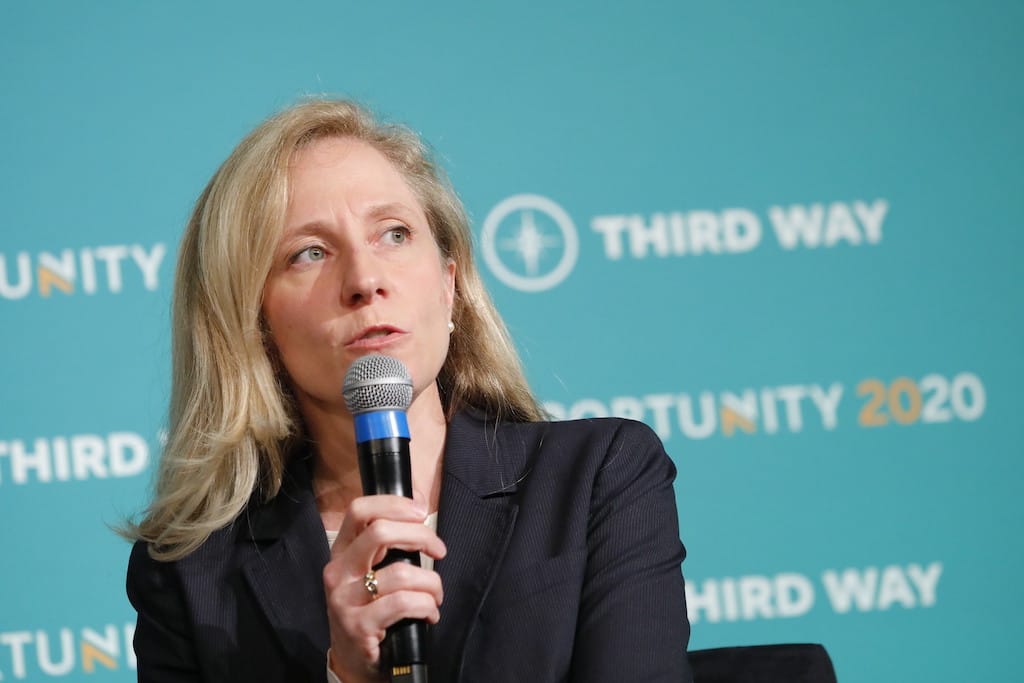Broadband-focused Dems Win Reelection, Questions on Digital Discrimination, New Comcast Exec
Rep. Abigail Spanberger’s Speedy Updates Act was signed into law as part of Infrastructure Investment and Jobs Act.

November 9, 2022 – Senate and House Democrats who are focused on broadband-related policies won re-election during the midterm election on Tuesday.
Sen. Michael Bennet, D-Colorado, who played a major role in the introduction of the Infrastructure Investment and Jobs Act, defeated GOP challenger Joe O’Dea by a margin of 54.9% to 42.5% of votes. O’Dea conceded the election on Tuesday evening.
Bennet also introduced the Broadband Transparency and Accountability Act to improve price transparency.
Another Democrat who had focused on broadband issues, Rep. Abigail Spanberger, D-Virginia, won a hard-fought seat against GOP challenger Yesli Vega, 52% to 48%.
Spanberger’s race in the exurban suburbs of Washington was closely watched by political observers to gauge the extent of an anticipated “red wave” of Republican victories that did not fully materialize.
In 2021, Spanberger’s Speedy Updates Act was signed into law as part of the IIJA, with a goal of increasing customer internet speeds. It sought to ensure that new broadband internet networks are built with the latest upload and download speeds.
Bennet and Rep. Abby Finkenauer, D-Iowa, had introduced the Broadband Transparency and Accountability Act in 2019, S. 2275 and H.R. 4024. It aims to change the way the federal government verifies and shares data regarding affordable internet access, although it is has not been reintroduced in the 117th Congress.
Next Century Cities wants digital discrimination addressed
Broadband advocacy group Next Century Cities said in letter Monday following a meeting with officials from the Federal Communications Commission that the agency must address digital discrimination and why it is important to provide equal access for all Americans.
The organization emphasized the need to identify discriminatory patterns that have impacts on communities that are currently disadvantaged. It said digital discrimination is historically linked with redlining, the process by which areas for investment are passed over for reasons including its low-income residents.
It said it “has documented why relying on provider submitted data only gives a skewed picture of how many homes are actually connected,” the letter said. “Faulty FCC data will not only undermine how federal broadband grant dollars are awarded but is oftentimes used as the baseline data for state broadband mapping.”
Agency officials said an important method of data collection is gathering stories and quantitative data from local leaders on the way digital discrimination has affected its communities.
Earlier this year, the FCC held a proceeding to eliminate digital discrimination among telecom providers. In the proceeding, the FCC said it would define equal access in order to provide fair coverage.
The FCC’s Communications Equity and Diversity Council on Monday unanimously recommended strategies to reduce digital discrimination and increase digital equity, promote affordable broadband, workforce diversity, state and local partnerships with minority and women-owned businesses.
Michael Slovin named Comcast Smart Solutions general manager
On Tuesday, Comcast announced Michael Slovin will take on the role of vice president and general manager at Comcast Smart Solutions.
Slovin has held corporate leadership positions with Comcast for the past 15 years. He was recently the vice president of national field sales with Comcast before becoming the VP and GM of Comcast Smart Solutions, as said in the press release.
“Leading our Smart Solutions division is a great opportunity to keep Comcast at the forefront of connectivity and space,” said Slovin. He said he is “excited by the chance to help our clients realize the benefits of smart technologies.”
Comcast Smart Solutions launched in April this year and provides connectivity and advisory services to customers to build smart technology systems.








